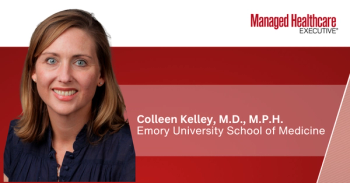
How treating opioid use disorder is cost effective
A commercial health plan analysis by axialHealthcare has interesting findings about funding opioid use disorder treatment plans.
As the opioid crisis is declared a public health emergency and the Trump Administration’s commission on combating the opioid epidemic unveiled its
Pain and opioid management company
According to the health IT company’s analysis, members who are using opioids and suspected of having an opioid use disorder (OUD), but are not diagnosed nor going through treatment, are more expensive on a per member per month (PMPM) basis than those who have been diagnosed with OUD and have progressed through a treatment plan.
Using axial’s database of more than 100 million patient lives, Elizabeth Ann Stringer, PhD, chief science officer at axialHealthcare, and colleagues looked at more than 600,000 utilizing members in a commercial health plan located in a southeastern region hard hit by the opioid crisis and compared PMPM costs for individuals associated with OUD. The analysis was completed as part of the team’s product development research efforts.
They found:
- Members using opioids and suspected to have OUD are three times as expensive PMPM as members not taking opioids.
- Members diagnosed with OUD and actively engaged in treatment are approximately 20% less expensive on a PMPM basis than their undiagnosed counterparts above.
- Members diagnosed with OUD who have progressed through a treatment plan and are in recovery are approximately 35% less expensive PMPM as those suspected to have OUD and using opioids.
Stringer
“The data suggests a financial incentive for health plans to knock down treatment barriers and increase provider use disorder education so they’re equipped to identify, engage and support members who have or are at risk of suffering from OUD,” Stringer says. “PMPM cost decreases when a patient's use disorder is identified and being treated, and then decreases some more when the patient has completed a treatment plan and is in recovery. If health plans improve access to treatment and recovery services and provide physicians with resources and education on use disorders, their PMPM costs lower.”
Based on the analysis, Stringer has three recommendations for healthcare executives:
- Leverage data analytics to identify members who are misusing opioids or those at risk of developing a use disorder.
- Educate providers on use disorders and give them access to unique decision support tools to better treat those patients with or at risk of OUD.
- Further engage these patients through avenues like digital and clinical support to improve care plan adherence and patient outcomes.
Newsletter
Get the latest industry news, event updates, and more from Managed healthcare Executive.

























